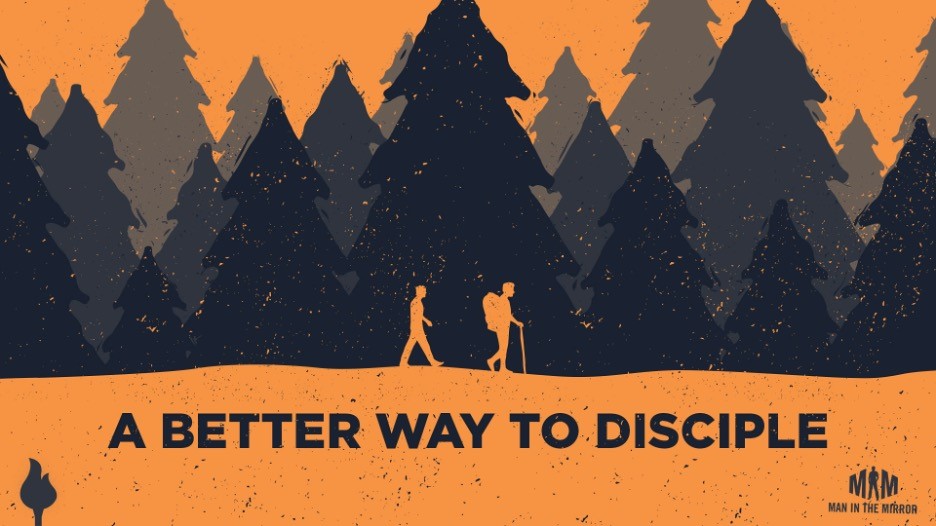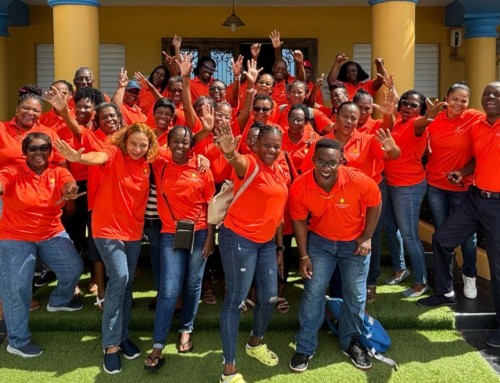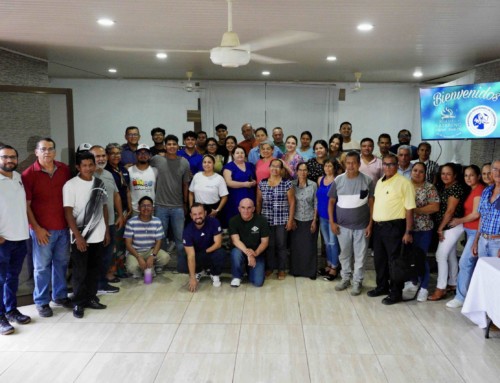Paul and Timothy: A Better Way to Disciple
Could you disciple someone? Are you qualified? What would it look like? You might be surprised.
By Brett Clemmer
By looking at Paul’s second letter to Timothy (and last letter ever), we’re seeing what Paul thought most important for Timothy to remember.
When I was in college, I was a big brother. Not the charitable kind that worked with underprivileged kids, but in my fraternity. As a big brother, I took a guy under my wing to show him the ropes. We spent a lot of time together studying, eating meals, attending meetings and activities, and just hanging out. My job was to help him become a productive brother in our house, and his job was to learn how. The ultimate measure of success for the fraternity was not just moving him from being a pledge to a brother, but to eventually see him become the big brother to a pledge. It was about mission and multiplication.
Take out the fraternity and insert the church, and that’s called discipleship. In the relationship between Paul and Timothy, we see some similarities, all leading us to a better way to disciple men.
Models for Discipleship That Don’t Quite Work
Some of the models we have relied on for discipleship are just a part of discipleship. Without other components, these models don’t work:
The Teacher
Perhaps the most prevalent discipleship model in the church is that of teacher-student. We rely heavily on this model in churches. Certainly, teaching and acquiring knowledge is an important part of discipleship, but it’s limited.
Why? A teacher meets students in a classroom or some other learning environment, gives them information that they need—and then sends them off. Or we adopt an even less hands-on version where we give someone a Christian book, printed handout, or suggested website and then send them off.
The Mentor
I realize the word “mentoring” gets used in various ways, and sometimes it’s more comprehensive than others. But when I talk to guys about mentoring—especially younger guys—they tend to think of a mentor as an expert in some key area.
The communication and sharing goes almost exclusively in one direction, as the mentor gives advice and imparts the lessons that helped him find success. But just like with the teacher model, they aren’t going through anything together; the mentor is just providing wisdom.
The Coach
This one sounds good to us. We like coaching, right? There’s just one problem: Where is a coach during the game? On the sidelines.
In all of these situations, the teacher, mentor, or coach is primarily engaged in imparting knowledge, wisdom, and skills—all necessary components of discipleship—but as real life happens, they are not present in the midst of everyday frustrations or major difficulties.
That’s why I think the best model for discipleship isn’t a teacher, mentor, or coach, but rather a guide.
Paul as Timothy’s Guide
Like a teacher, a guide is prepared; like a mentor, he’s experienced; and like a coach, he prepares you for the journey, too. But what’s unique about a guide is that he then goes with you.
He’s not saying, “Well, here’s the best path. Hope you make it!” Instead, along the path, when you have questions, he’s there to answer them. When you face challenges, risks, victories, or unexpected obstacles, he’s at your side, experiencing them with you.
This is what the relationship between Paul and Timothy is all about—going on a long journey together, with Paul as the guide.
Near the end of this journey, Paul writes his last letter to Timothy from prison. He’s hopeful that he’ll get out but also realizes it’s probably unlikely—after all, the emperor is a guy named Nero. So his letter is what they call a “farewell discourse” in the Bible. (For other farewell discourses, read Deuteronomy 33, Joshua 23-24, and John 14-16.) It’s the stuff you want those whom you know best to remember most.
As Christians who want to grow in our faith and help others grow, the farewell discourse (2 Timothy) from Paul to Timothy shows us a lot about this more complete model of discipleship.
What Does Discipleship Look Like?
The guide model of discipleship requires: 1) presence over time, 2) shared experiences, and 3) Christian affection.
1) Presence Over Time
Paul wrote 13 epistles. Timothy is mentioned by name in 11 of them. He’s listed as a co-author on six.
It’s clear that Paul spent a lot of time with Timothy, often embarking on long journeys together. Think of the hundreds of conversations they must have had sitting around a fire at night or maybe as guests in the upper room of somebody’s home. Or over meals and as they walked along the road. Along the way, Paul discipled him.
Discipleship doesn’t just happen in a classroom, or in a business office, or on a playing field. That can be part of it. But if you’re relying on episodic, dive-bomb discipleship through a weekly one-hour meeting, it’s unlikely to create lasting change.
I was talking with Michael Aitcheson, a pastor who occasionally guest speaks at the Bible study, about what it takes for someone to make a real impact on another’s life. He said, “It starts with proximity.”
Proximity. Physical presence. A guide goes with you on the journey, and discipleship happens along the way.
THE BIG IDEA: Discipleship happens along the way.
2) Shared Experiences
As Paul and Timothy spent time together, they accumulated shared experiences—literally over years. The result was they built mutual trust.
In 1 Corinthians, we get a picture of the state of the church there. Background? The rough cliffs-notes version is Paul planted a church in Corinth, and they are screwing it up. The Corinthians are doing all kinds of crazy—incest, political strife, socioeconomic division, and on and on.
Who does Paul send to help? Timothy.
In 1 Corinthians 4:17, Paul writes to the church in Corinth, “For this reason I have sent to you Timothy, my son whom I love, who is faithful in the Lord. He will remind you of my way of life in Christ Jesus, which agrees with what I teach everywhere in every church.”
Through shared experiences, they built so much trust that Paul sends Timothy, a young man he’s guided along the way, to this church that he loves but that urgently needs a troubleshooter. In effect, he passes the torch.
3) Christian Affection
Do you sense the deep affection in Paul’s description of Timothy in his letter to the Corinthians?
You see it all throughout 2 Timothy as well. Paul opens that letter with this greeting: To Timothy, my beloved child: Grace, mercy, and peace from God the Father and Christ Jesus our Lord (2 Timothy 1:2).
Look at this phrase—my beloved child. The Greek phrase is agapetos teknon. You may recognize the word agape. Agape love is the deep, moral kind of love that you choose to have and show. It’s not merely brotherly affection like phileo; it’s not erotic affection like eros; but it’s an intentional, moral, deep love for someone.
Teknon means son or child. But when you put the two together, agapetos teknon takes on a bigger meaning. One reference source defined it this way: “the intimate and reciprocal relationship formed between people by the bonds of love, friendship, and trust, just as between parents and children.” An intimate and reciprocal relationship goes both ways, bonded by love, friendship, and trust.
This kind of Christian affection isn’t something we talk about openly much, and it can be difficult to grasp if you’ve never experienced it. But this idea of agapetos teknon was evident in the next verses of Paul’s letter:
I thank God whom I serve, as did my ancestors, with a clear conscience, as I remember you constantly in my prayers night and day. As I remember your tears, I long to see you, that I may be filled with joy. I am reminded of your sincere faith… (verses 3-5a, emphasis added)
Notice how many times Paul uses “remember” or “reminded.” He is at the end of his life—of this long journey that he’s been on with Timothy—and he’s telling him, “Hey, I remember you all the time. I pray for you all the time. I remember the tears you shed when we said goodbye. Our affection for each other is so deep that we cried when we left each other.”
This isn’t weakness. This kind of Christian affection is a sign of strength! It’s built with bonds of love and friendship and trust. If you’ve experienced it, you know how wonderful it is to have a close brother who knows you, loves you, and can be relied on in difficult times.
Paul says, “I remember, I remember, I am reminded” because he has invested his presence over time in Timothy’s life and they have years of shared experiences to recall. It’s discipleship along the way.
Are you qualified to disciple someone else?
Many times, people feel inadequate to disciple others. No one knows our weaknesses better than us, right?
But let’s consider Paul. I mentioned Paul wrote 13 of the epistles. He was a consummate church planter and central figure of the early church. He fostered leaders and built up the body of Christ.
But what else was he? Paul was a murderer. Paul was a persecutor of the church. Until one day, on the road to Damascus, he had an experience where God spoke to him, and it led to his radical conversion.
2 Timothy begins with, “Paul, an apostle of Christ Jesus.” An apostle in the Bible is somebody who has met and been sent by Jesus. Paul had that face-to-face experience with Jesus in Damascus, and it changed everything about him. A murderer, a persecutor, and now an apostle.
You may think, I’ve screwed up in my life. I’ve messed up a marriage. I have failed businesses. I’ve hurt people. I promise you are not worse than Paul was. He held people’s coats while they stoned Stephen to death. But God got a hold of his heart and transformed it.
Has God gotten a hold of your heart and transformed it? Have you had an experience with Jesus? Do you understand the promise of life that is in Christ?
Then you are qualified to disciple someone else.
Teacher, Mentor, Coach, Guide
A final note: If you are a gifted teacher, you should teach! If you have a lot of wisdom in a certain area and someone would benefit from your expertise, by all means, mentor them. If you are a great skill builder and encourager, coach away! You can have a broad impact on many people as a teacher, mentor, or coach. It takes all of these gifts and callings to build up the church.
But I challenge you to find that one person who needs someone to live life with them—who needs a spiritual parent—to become your agapetos teknon.
Then your impact will be deep, and you will delight someday not only in having a spiritual child, but a spiritual grandchild and maybe even great grandchild as well.
Copyright © 1986-2020 Man in the Mirror






